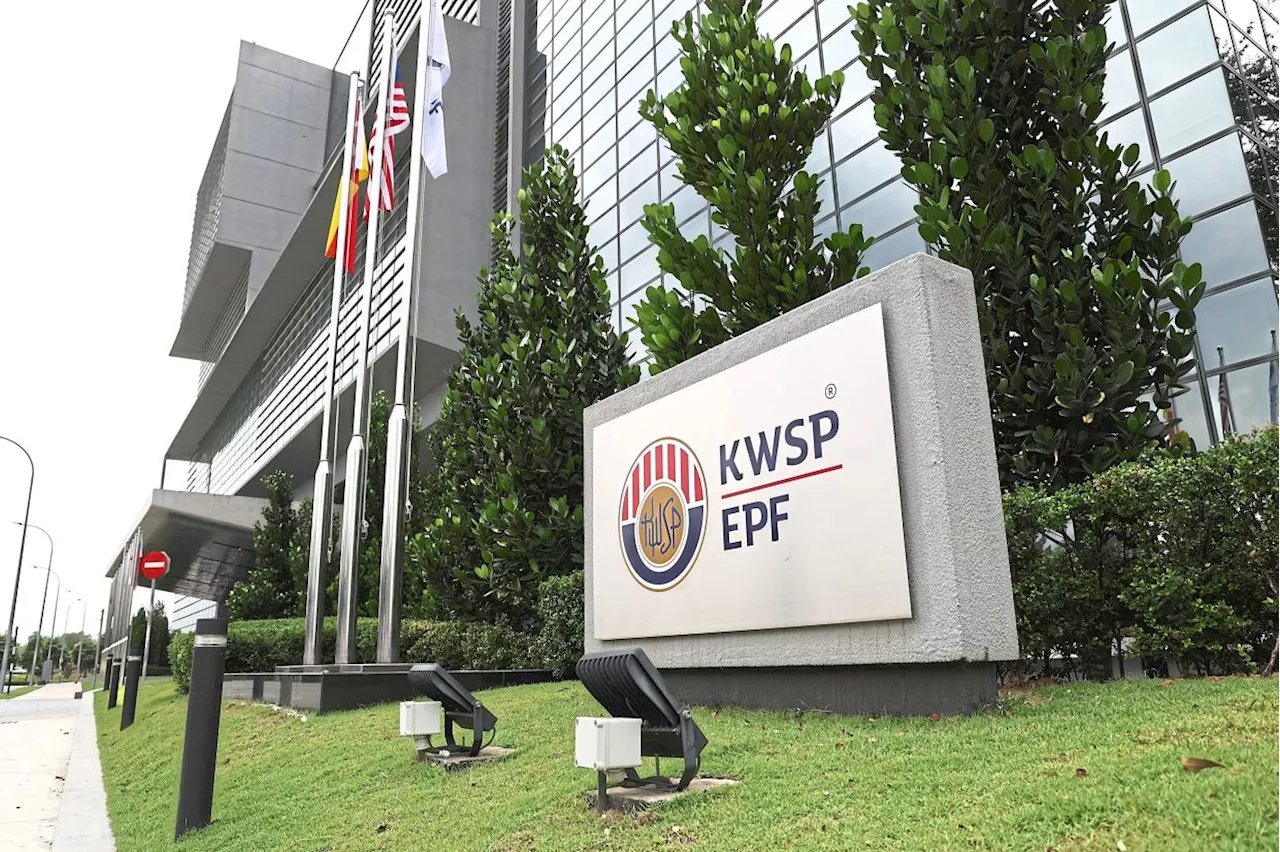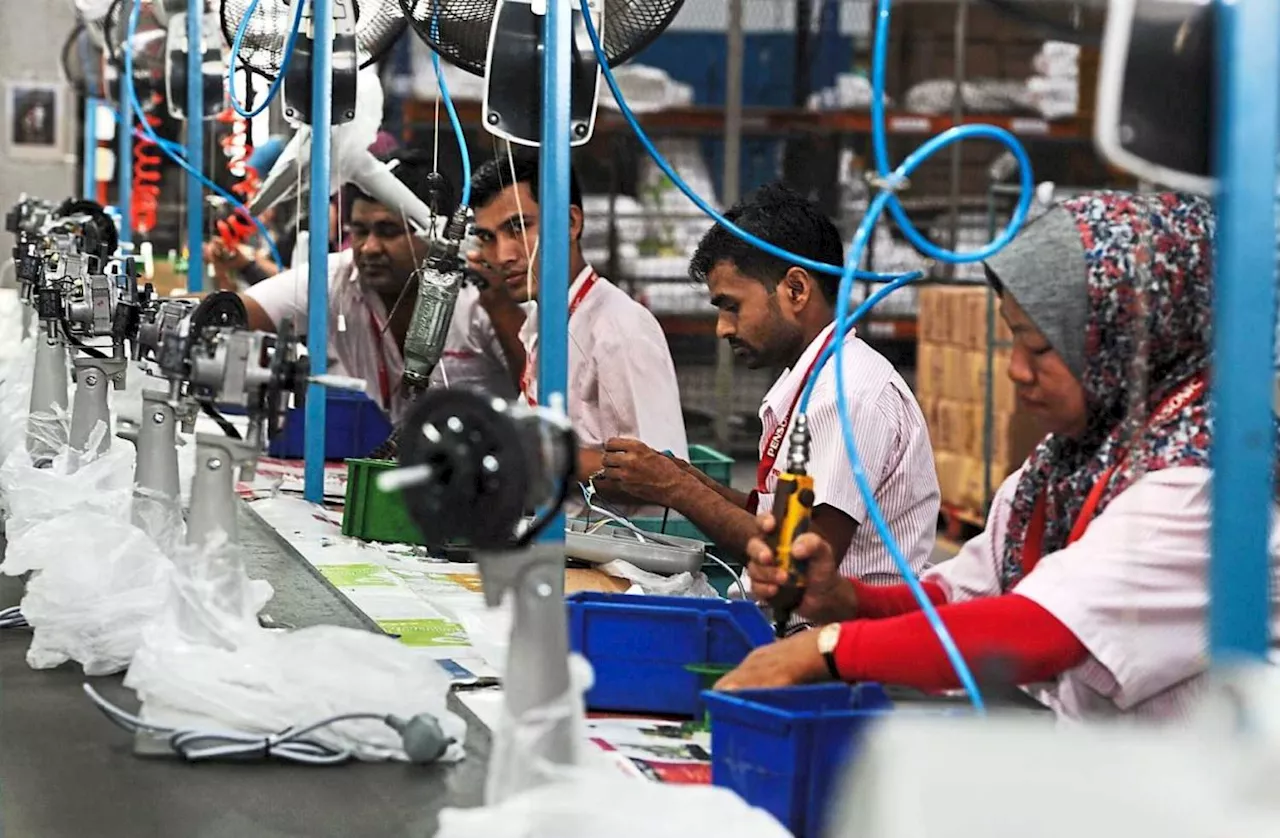The Sabah Progressive Party (SAPP) warns of the potential economic impact of the proposed mandatory 2% Employees Provident Fund (EPF) contribution rate for foreign workers.
The mandatory 2% Employees Provident Fund ( EPF ) contribution rate for foreign workers would place a significant burden on Sabah , according to the Sabah Progressive Party (SAPP). SAPP information chief, Chin Vui Kai, voiced his opposition to the proposal, warning that it would have far-reaching consequences for Sabah 's economy. \ Chin expressed concern that forcing foreign workers to contribute to the EPF would disrupt domestic economic activity.
He argued that instead of circulating within the consumer market, funds would be redirected towards the capital market, potentially dampening market vitality. Additionally, he pointed out that most foreign workers have short employment cycles, rendering mandatory EPF contributions less beneficial for them. Instead, it would increase the financial burden on businesses, many of which in Sabah have already faced closures due to economic difficulties, Chin stated.\Chin further explained that Sabah's market remains reliant on suppliers from Peninsular Malaysia, encompassing both product supply and transportation costs. He asserted that policies such as increasing minimum wages in the Peninsula would directly lead to higher goods prices in Sabah, exacerbating the cost-of-living crisis. As an example, he cited past increases in diesel prices resulting from subsidy removal in the Peninsula, which have already raised business costs and triggered inflation. With Tenaga Nasional Berhad’s (TNB) electricity tariff set to rise, Chin warned that the situation would worsen, pushing Sabah's market into a cycle of worsening inflation. He urged the Federal Government to reconsider these policies and engage in comprehensive discussions with industry players to prevent a surge in inflation in Sabah. Prime Minister Datuk Seri Anwar Ibrahim had proposed during the Budget 2025 presentations to mandate all non-citizen workers to contribute to the EPF to ensure fair treatment for all workers regardless of nationality. Following this, the Finance Ministry proposed standardizing the EPF contribution rate for Malaysians and foreign nationals with new employment contracts, meaning employees would contribute 11% while employers contribute 12 % to - 13%. The Finance Ministry also proposed a phased implementation of the contribution rate for foreign workers and employers with existing contracts, starting at two percent and gradually increasing over six years until it matches the EPF contribution rate applied to all workers in Malaysia
FOREIGN WORKERS EPF SABAH ECONOMY INFLATION
Malaysia Latest News, Malaysia Headlines
Similar News:You can also read news stories similar to this one that we have collected from other news sources.
 Govt proposes mandatory 2% EPF contribution for foreign workersThe rate was lower than the initial proposal of 12%.
Govt proposes mandatory 2% EPF contribution for foreign workersThe rate was lower than the initial proposal of 12%.
Read more »
 Anwar: EPF contribution to be capped at 2% for foreign workersPopularly known as ‘Big S’, Barbie Hsu began her career in 1994 in the pop duo SOS before starring in a number of hit films and TV series.
Anwar: EPF contribution to be capped at 2% for foreign workersPopularly known as ‘Big S’, Barbie Hsu began her career in 1994 in the pop duo SOS before starring in a number of hit films and TV series.
Read more »
 Malaysia to Maintain 2% EPF Contribution for Foreign WorkersThe Malaysian government will keep the proposed mandatory Employees Provident Fund (EPF) contribution rate for foreign workers at 2% each for employees and employers. Human Resources Minister Steven Sim stated that this rate will remain in place until further studies assessing its suitability are conducted. The implementation details will be further discussed in a Cabinet meeting before a bill to amend the EPF Act 1991 is presented in Parliament.
Malaysia to Maintain 2% EPF Contribution for Foreign WorkersThe Malaysian government will keep the proposed mandatory Employees Provident Fund (EPF) contribution rate for foreign workers at 2% each for employees and employers. Human Resources Minister Steven Sim stated that this rate will remain in place until further studies assessing its suitability are conducted. The implementation details will be further discussed in a Cabinet meeting before a bill to amend the EPF Act 1991 is presented in Parliament.
Read more »
 Malaysia's 2% EPF Contribution for Foreign Workers: A Welcome Relief or Cause for Concern?The Malaysian government's decision to implement a 2% mandatory Employees Provident Fund (EPF) contribution rate for foreign workers has sparked mixed reactions. While some business groups welcome the move, citing its positive impact on business sustainability and foreign worker welfare, others express concerns about the potential financial burden on smaller enterprises. The government's decision also raises questions about the existing social security framework and the integration of this new contribution scheme.
Malaysia's 2% EPF Contribution for Foreign Workers: A Welcome Relief or Cause for Concern?The Malaysian government's decision to implement a 2% mandatory Employees Provident Fund (EPF) contribution rate for foreign workers has sparked mixed reactions. While some business groups welcome the move, citing its positive impact on business sustainability and foreign worker welfare, others express concerns about the potential financial burden on smaller enterprises. The government's decision also raises questions about the existing social security framework and the integration of this new contribution scheme.
Read more »
 EPF Contribution for Foreign Workers Capped at 2%Malaysian Prime Minister Anwar Ibrahim announced that the mandatory Employees Provident Fund (EPF) contribution for foreign workers will be capped at 2%, down from the initial proposal of 12%. The decision was made following discussions with commerce chambers. Anwar stated that the contribution is not cumulative and may be increased to 4% in the future.
EPF Contribution for Foreign Workers Capped at 2%Malaysian Prime Minister Anwar Ibrahim announced that the mandatory Employees Provident Fund (EPF) contribution for foreign workers will be capped at 2%, down from the initial proposal of 12%. The decision was made following discussions with commerce chambers. Anwar stated that the contribution is not cumulative and may be increased to 4% in the future.
Read more »
 Malaysia to Maintain 2% EPF Contribution Rate for Foreign WorkersPrime Minister Anwar Ibrahim assures that the mandatory EPF contribution for foreign workers will remain at 2%. He addresses concerns about a cumulative contribution system and highlights the government's commitment to fair treatment for all workers.
Malaysia to Maintain 2% EPF Contribution Rate for Foreign WorkersPrime Minister Anwar Ibrahim assures that the mandatory EPF contribution for foreign workers will remain at 2%. He addresses concerns about a cumulative contribution system and highlights the government's commitment to fair treatment for all workers.
Read more »
